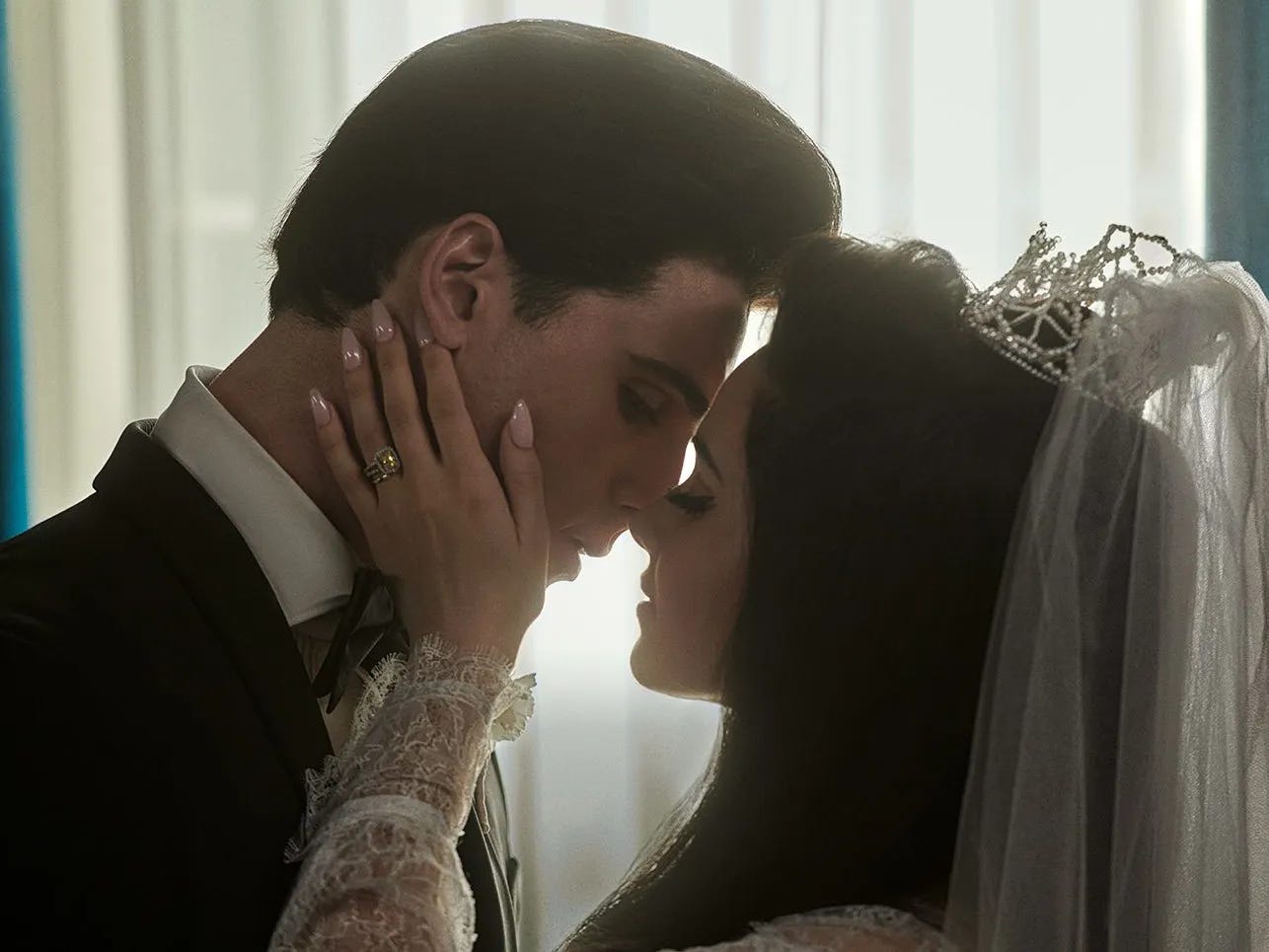Priscilla
Sofia Coppola's "Priscilla" serves as an interesting flip side to Baz Luhrmann's "Elvis" and a thematically-perfect addition to her filmography.
Film Yap is a reader-supported publication. To receive new posts and support my work please consider becoming a free or paid subscriber.
Sofia Coppola’s “Priscilla” (now in theaters) plays as an interesting flip side to Baz Luhrmann’s “Elvis” from last year. Luhrmann’s film was from Col. Tom Parker’s perspective (he’s referenced, but never shown here), presented Elvis Presley as a far more sympathetic figure and treated Priscilla (as played by Olivia DeJonge) as an afterthought … much like The King himself did.
“Priscilla,” as the title suggests, is entirely from the perspective of Priscilla Beaulieu (a winning Cailee Spaeny). It’s 1959 and she’s a 14-year-old girl from Austin, Texas who’s living in and attending high school at a U.S. Army base in Wiesbaden, Germany with her mother Ann (Dagmara Dominczyk) and Air Force captain father (Ari Cohen).
Priscilla, bored and homesick, jumps at the opportunity to attend a house party at the rented home of enlisted 24-year-old rock ‘n’ roll superstar Elvis (Jacob Elordi) by invitation of the singer’s pal Terry West (Luke Humphrey). Priscilla’s parents are understandably reticent to allow their daughter to attend, but Terry assures them he and his wife Carol (Deanna Jarvis) will be attentive chaperones. They relent. She attends.
Priscilla makes quite the impression on Elvis – so much so that he calls upon her many times subsequently. Priscilla’s father insists that if Elvis is going to continue courting his daughter he’ll need to come to their home and formally meet her parents. Elvis shows up in full military uniform with his father Vernon (Tim Post) in tow.
Elvis eventually returns to the States to make movies and record albums, which breaks Priscilla’s heart. She writes him reams of letters and hears nothing in return … until one day the phone rings. It’s Elvis calling from set. He says he wants his father to take guardianship of Priscilla and for her to move in with him at Graceland. Perplexingly, Priscilla’s parents grant the Presley’s request. She’s soon enrolled in a Catholic school in Memphis and is hanging with Elvis’ “Mafia” which shares a name with the town.
Coppola adapted Sandra Harmon and Priscilla Presley’s “Elvis and Me” into “Priscilla.” (Presley also served as an executive producer.) It falls right in line with much of Coppola’s filmography in that it chronicles a young woman’s imprisonment – whether that be at the hands of overprotective parents (“The Virgin Suicides”) or within the confines of a loveless marriage (“Lost in Translation,” “Marie Antoinette”).
“Priscilla” is a sad picture that very clearly conveys this young lady’s loneliness, mistreatment and oppression. It’s less a narrative and more of a vibe. This ambiance is established through the anachronistic music of Phoenix (for whom Coppola’s husband Thomas Mars is the frontman), the cinematography of Philippe Le Sourd, editing of Sarah Flack and the sterling (and award-worthy) costume and production design of Stacey Battat and Tamara Deverell, respectively. When these folks’ work coalesces – like when Priscilla hilariously accessorizes dresses with different handguns or in the depiction of Elvis and Priscilla tripping on LSD – this shit sings sublimely.
Spaeny (who won Best Actress at the Venice Film Festival) and Elordi are both electric. She’s absolutely lovely and makes for a particularly sympathetic Priscilla by conveying a gamut of emotions facially. Elordi’s Elvis is a very different beast than Austin Butler’s. He’s certainly capable of being charming and disarming, but he’s also presented as a pillhead from the jump. On top of that he’s also a groomer, a cheater (affairs with Nancy Sinatra and Ann-Margaret are chronicled) and a gaslighter. The height differential between Spaeny (5’1”) and Elordi (6’5” – five full inches taller than The King) further hammers these themes home.
I ultimately liked Coppola’s “Priscilla” about the same as Luhrmann’s “Elvis,” but for very different reasons. This controlling iteration of Elvis made Graceland every bit the prison for Priscilla that Versailles was to Marie Antoinette … I’m glad she was eventually able to escape and become her own person.



